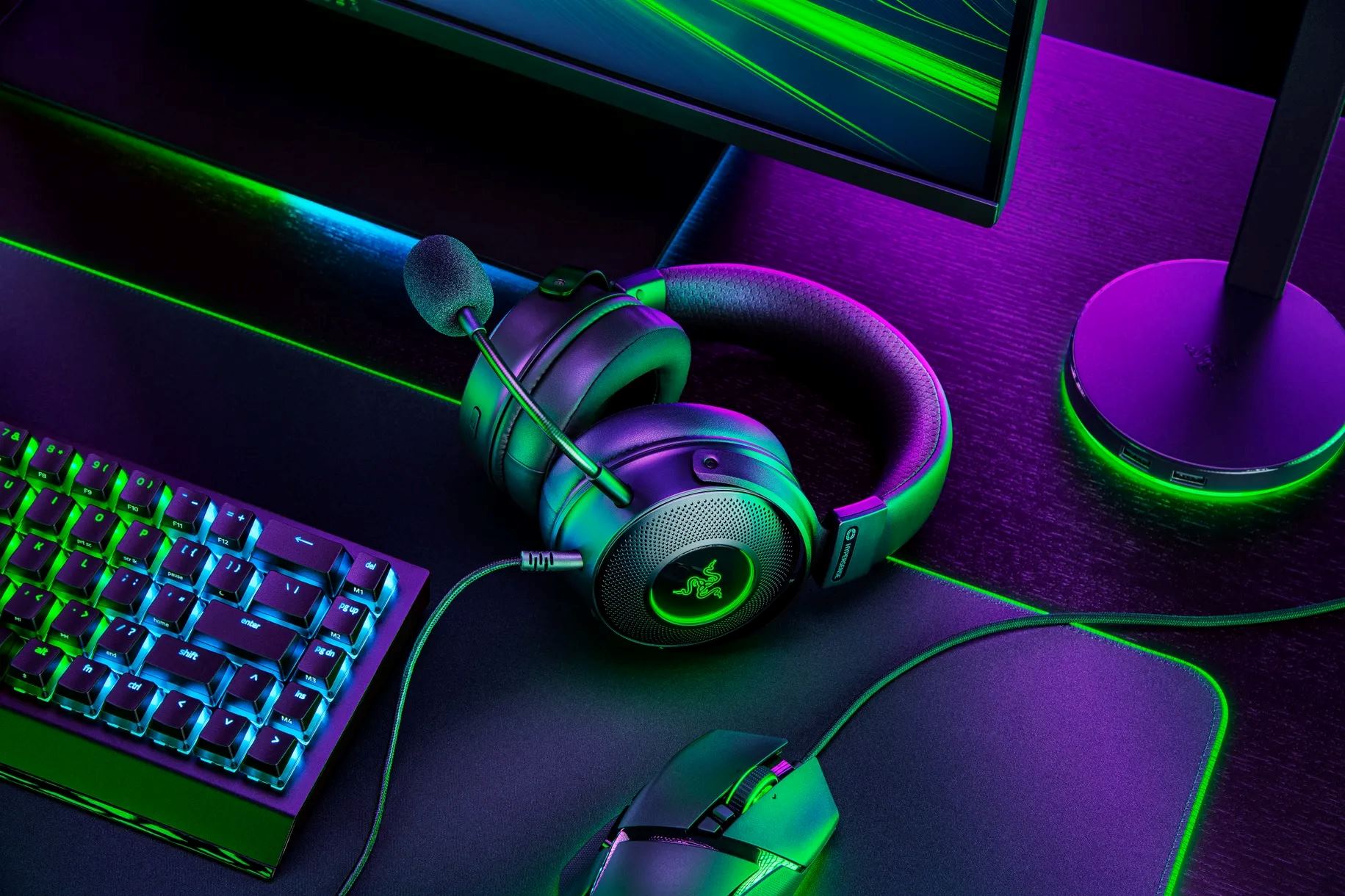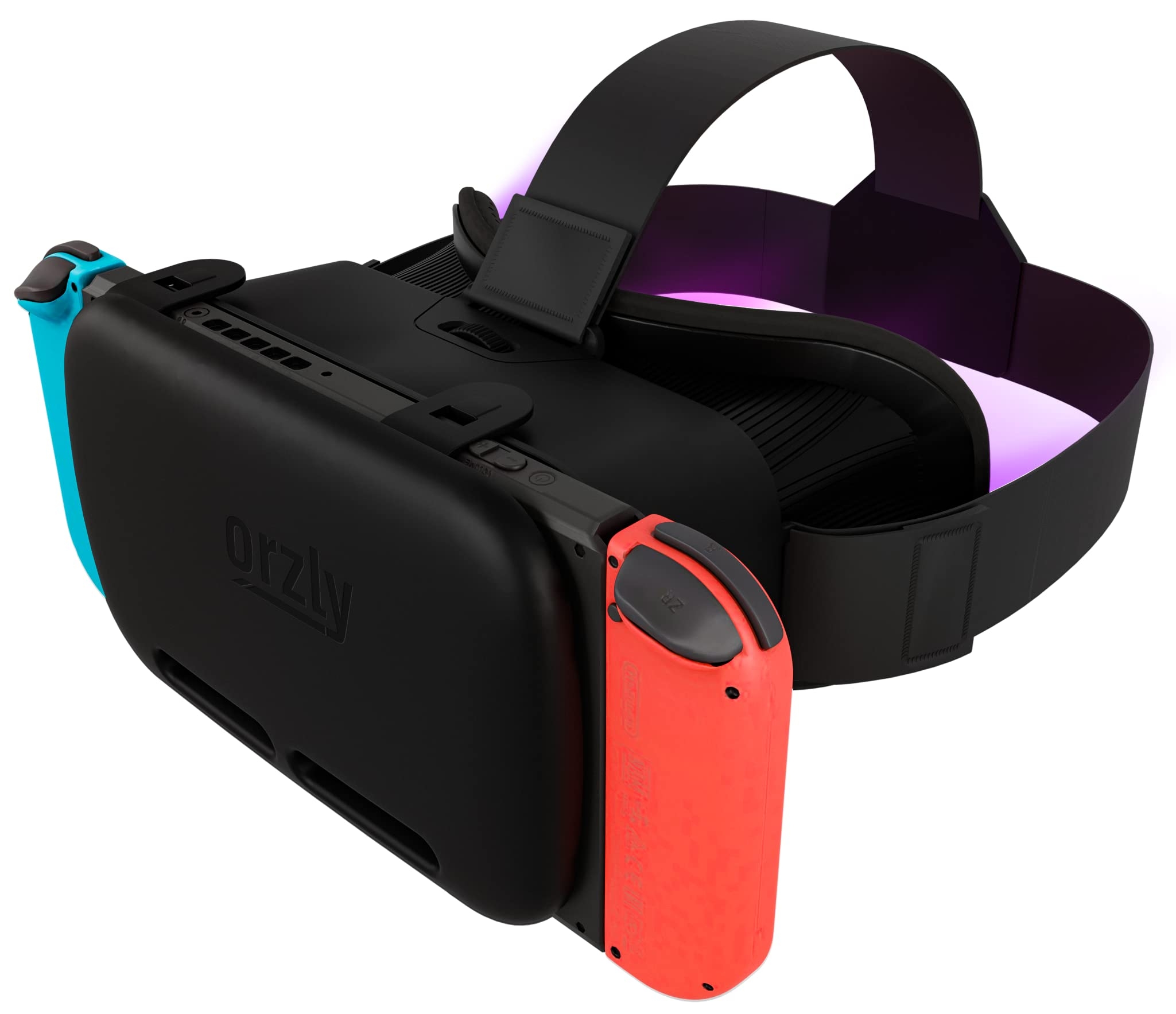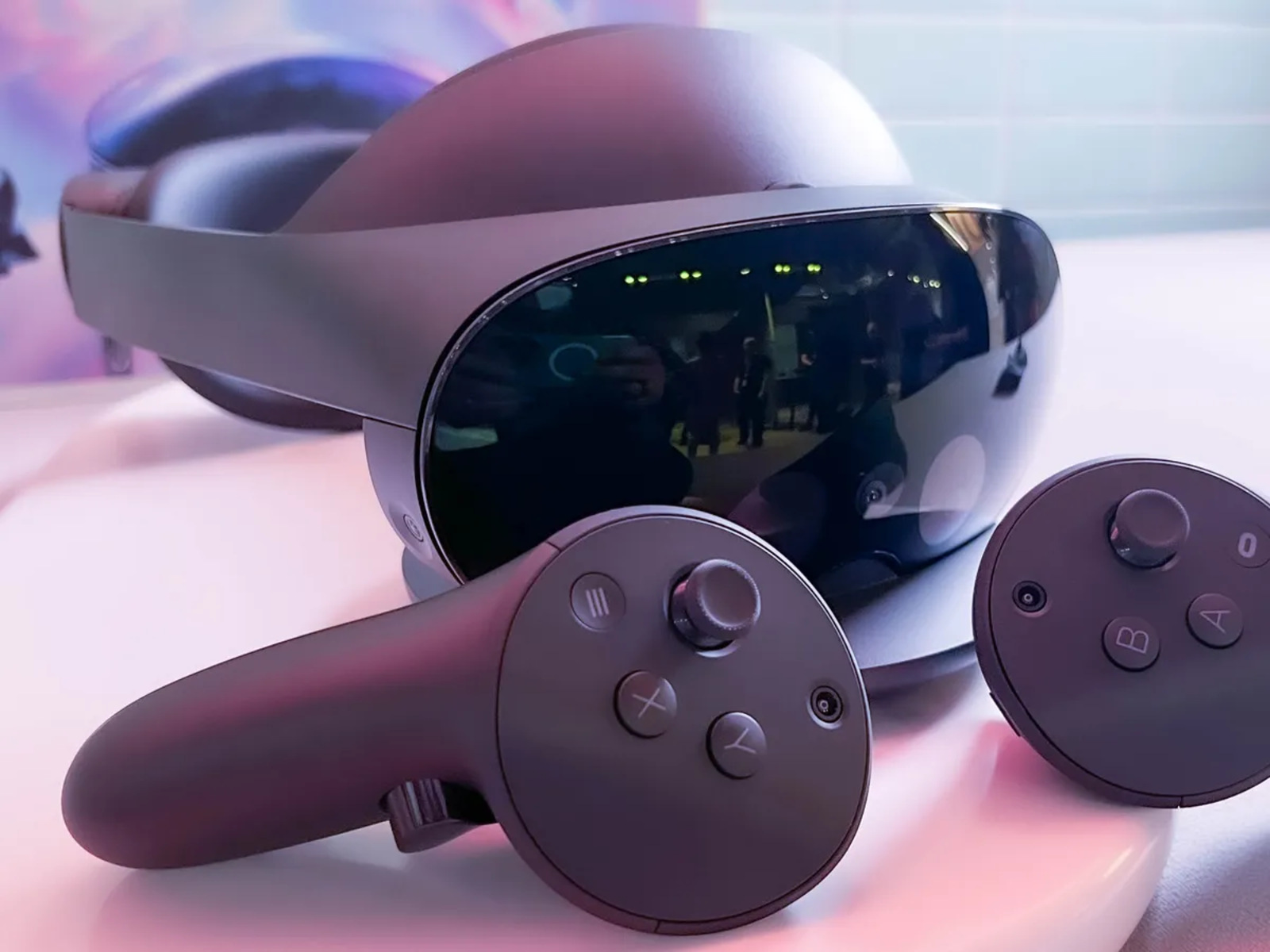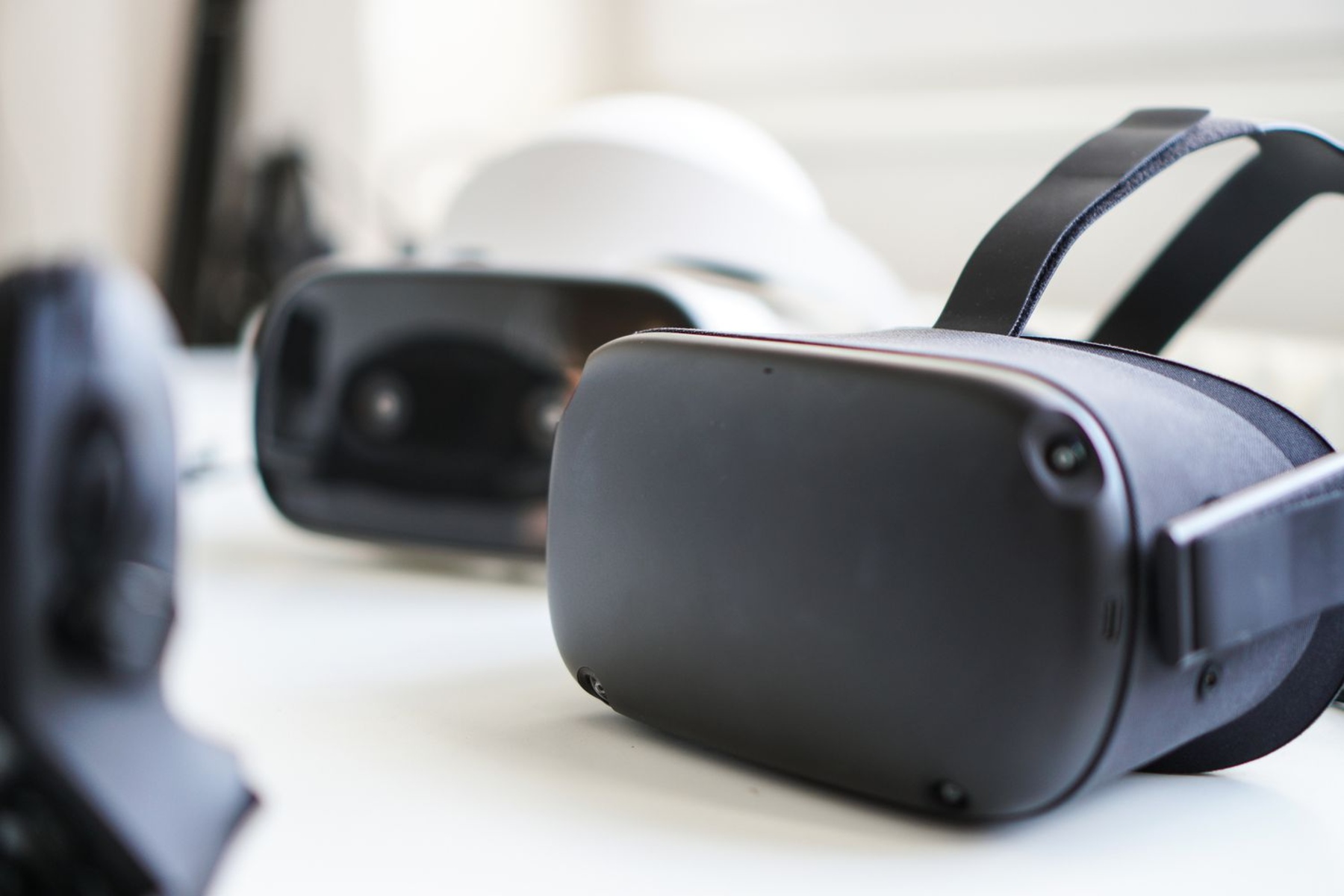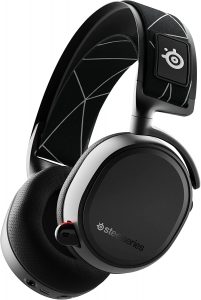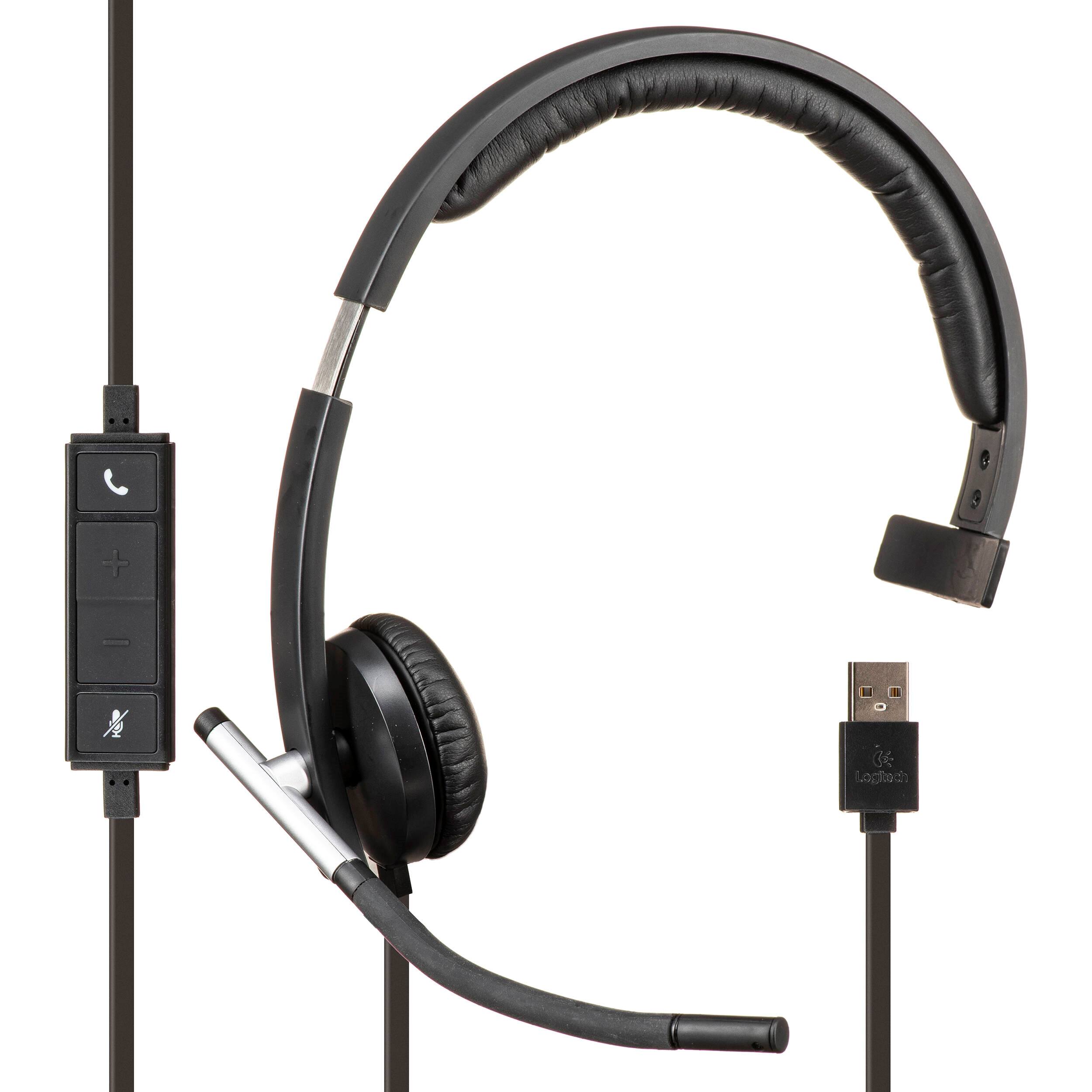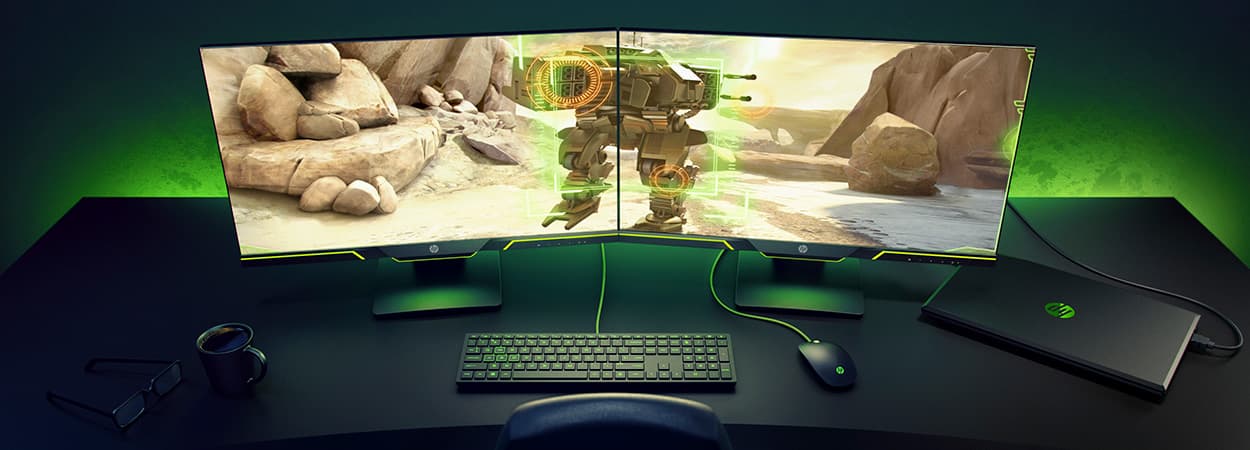Introduction
Introduction
Are you an avid PC gamer looking to elevate your gaming experience? Choosing the right gaming headset can significantly enhance your immersion in the virtual world while providing a competitive edge in multiplayer battles. With a plethora of options available in the market, selecting the ideal gaming headset for your PC can be a daunting task. This guide aims to simplify the decision-making process by highlighting the key factors to consider when purchasing a gaming headset.
From wired to wireless, stereo to surround sound, open-back to closed-back, and microphone quality to compatibility with your PC, each aspect plays a crucial role in determining the overall gaming experience. Understanding these factors and their implications can empower you to make an informed decision that aligns with your gaming preferences and budget.
In this comprehensive guide, we will delve into the various considerations when choosing a gaming headset for your PC. By the end, you will have a clear understanding of the different features and their impact on your gaming experience, allowing you to make a confident and well-informed purchase decision. So, let's embark on this journey to find the perfect gaming headset for your PC setup.
Wired vs Wireless Gaming Headsets
When it comes to choosing a gaming headset for your PC, one of the primary decisions you’ll face is whether to opt for a wired or wireless model. Each option comes with its own set of advantages and limitations, and understanding these can help you make an informed choice.
Wired Gaming Headsets:
- Advantages:
- Consistent, uninterrupted connectivity
- No need for recharging
- Generally lower latency, ensuring minimal audio lag
- Limitations:
- Potential cable clutter
- Restricted mobility due to the physical connection
Wireless Gaming Headsets:
- Advantages:
- Enhanced freedom of movement
- Reduced cable clutter
- Convenience, especially for those who move around while gaming
- Limitations:
- Requires battery charging, leading to potential downtime
- Possible latency issues, although modern wireless headsets have significantly minimized this concern
Ultimately, the choice between a wired and wireless gaming headset boils down to personal preference and gaming habits. If you prioritize consistent connectivity and minimal latency, a wired headset might be the ideal choice. On the other hand, if freedom of movement and convenience are paramount, a wireless headset could be the perfect fit for your gaming setup.
Surround Sound vs Stereo Sound
When selecting a gaming headset for your PC, the choice between surround sound and stereo sound is a crucial consideration that directly impacts your gaming experience. Each audio technology offers distinct advantages, and understanding their differences can help you make an informed decision.
Stereo Sound:
Stereo sound, represented by the classic left and right audio channels, provides a more traditional audio experience. While it may not offer the immersive 360-degree audio environment of surround sound, stereo sound can still deliver high-quality audio with accurate directional cues.
Advantages of Stereo Sound:
- Clear and precise audio positioning
- Compatibility with a wide range of games and media
- Often more affordable than surround sound options
Surround Sound:
Surround sound technology aims to replicate a multi-directional audio environment, creating a more immersive and spatially accurate auditory experience. By simulating sounds from all directions, surround sound can enhance situational awareness and immerse you deeper into the gaming world.
Advantages of Surround Sound:
- Enhanced spatial awareness, crucial for competitive gaming
- Immersive audio experience for narrative-driven games and movies
- Realistic audio representation for environmental and ambient sounds
When deciding between surround sound and stereo sound, consider the types of games you predominantly play and your overall gaming preferences. Competitive gamers may benefit from the precise audio positioning offered by stereo sound, while enthusiasts of immersive, story-driven titles may find the spatial accuracy of surround sound more appealing. Additionally, the price point and compatibility with your PC should also be factored into your decision-making process.
Open-back vs Closed-back Headsets
When considering a gaming headset for your PC, the choice between open-back and closed-back designs is an important factor that directly influences audio quality and the overall gaming experience. Understanding the distinctions between these designs can assist you in making an informed decision tailored to your gaming preferences.
Closed-back Headsets:
Closed-back headsets feature ear cups with sealed backs, effectively isolating the user’s ears from external sounds. This design creates a more immersive audio experience by minimizing sound leakage and providing passive noise isolation, ideal for intense gaming sessions in noisy environments.
Advantages of Closed-back Headsets:
- Enhanced noise isolation, minimizing external distractions
- Deeper bass response and more impactful low-end sound reproduction
- Reduced sound leakage, ideal for gaming in shared spaces
Open-back Headsets:
Open-back headsets feature ear cups with perforations or open grilles, allowing air and sound to pass through. This design creates a more spacious and natural soundstage, resulting in a more airy and open audio experience that can be beneficial for certain types of gaming and audio enjoyment.
Advantages of Open-back Headsets:
- Expanded soundstage, providing a more natural and spacious audio presentation
- Reduced heat and moisture buildup, enhancing comfort during extended gaming sessions
- Minimized resonance, contributing to a cleaner and more accurate audio reproduction
When choosing between open-back and closed-back headsets, consider your gaming environment, preferred audio characteristics, and comfort preferences. If you prioritize noise isolation and impactful bass reproduction, a closed-back design may be the optimal choice. Conversely, if you value a more natural and open audio presentation with enhanced comfort, an open-back headset could align better with your gaming needs.
Comfort and Build Quality
When selecting a gaming headset for your PC, prioritizing comfort and build quality is essential for prolonged gaming sessions and overall user satisfaction. A well-constructed and comfortable headset can significantly enhance your gaming experience while minimizing discomfort and fatigue.
Comfort:
Comfort encompasses various aspects, including the weight of the headset, ear cushion material, headband design, and overall ergonomic features. A comfortable headset should provide a secure fit without exerting excessive pressure on the head or ears, ensuring extended wear without discomfort.
Factors Contributing to Comfort:
- Adjustable headband and ear cup positioning for personalized fit
- Plush and breathable ear cushions for long-lasting comfort
- Lightweight yet durable construction to minimize strain during extended use
Build Quality:
The build quality of a gaming headset directly impacts its durability, longevity, and overall user experience. High-quality materials, robust construction, and attention to detail contribute to a reliable and long-lasting headset that can withstand the demands of intense gaming sessions.
Indicators of Superior Build Quality:
- Durable and flexible headband construction
- Reinforced and tangle-resistant cables for wired headsets
- Sturdy and resilient ear cup hinges and swivels
When evaluating comfort and build quality, consider the materials used, the adjustability of the headset, and user reviews highlighting long-term comfort and durability. Prioritizing a comfortable and well-constructed headset ensures that you can fully immerse yourself in your gaming adventures without the distractions of discomfort or concerns about the headset’s longevity.
Microphone Quality
While the focus of gaming headsets often centers on audio quality, the microphone is an equally crucial component, especially for multiplayer gaming, streaming, and communication with teammates. The microphone quality of a gaming headset can significantly impact the clarity of your voice transmission and overall gaming interactions, making it an essential consideration when choosing a headset for your PC.
Clarity and Noise Cancellation:
A high-quality microphone should deliver clear and intelligible voice reproduction while effectively minimizing background noise and unwanted ambient sounds. Noise-canceling features can ensure that your voice remains prominent and free from distortion, contributing to seamless communication in multiplayer games and online conversations.
Adjustability and Positioning:
The flexibility and adjustability of the microphone boom are essential factors to consider. A retractable or flexible microphone arm allows for precise positioning, ensuring optimal voice capture and the ability to adjust the microphone when not in use. Additionally, a mute function directly on the microphone or headset can provide convenient control over voice transmission during gameplay.
Compatibility and Voice Enhancement:
Some gaming headsets offer compatibility with voice enhancement software, allowing for further customization of voice settings, noise reduction, and voice modulation. These features can enhance the overall quality of voice communication, providing a tailored experience that aligns with your preferences and gaming requirements.
When assessing microphone quality, consider user reviews, technical specifications, and microphone frequency response to gauge the headset’s voice reproduction capabilities. Prioritizing a headset with a high-quality microphone ensures that your voice is accurately and clearly transmitted, enhancing your gaming interactions and communication with fellow gamers.
Compatibility with PC
Ensuring that your chosen gaming headset is compatible with your PC is crucial for a seamless and hassle-free gaming experience. Compatibility encompasses various aspects, including connectivity options, software support, and system requirements, all of which contribute to the headset’s integration with your PC gaming setup.
Connectivity Options:
When evaluating compatibility, consider the connectivity options provided by the gaming headset. Wired headsets commonly utilize USB or 3.5mm audio jacks for connection, while wireless headsets may require USB dongles or Bluetooth connectivity. It’s essential to verify that your PC supports the chosen connectivity method to enable straightforward setup and usage.
Software Support and Customization:
Many gaming headsets offer dedicated software that allows users to customize audio settings, create personalized sound profiles, and adjust microphone parameters. Compatibility with your PC’s operating system and the availability of software updates are vital considerations to ensure that you can fully leverage the headset’s features and customization options.
System Requirements:
Some advanced gaming headsets may have specific system requirements, such as minimum RAM, processor speed, or available USB ports. Reviewing the manufacturer’s specifications and recommended system requirements can help you determine whether the headset is optimized for your PC gaming environment.
Furthermore, compatibility with popular gaming platforms, communication software, and streaming applications can enhance the versatility of the gaming headset, allowing for seamless integration with your preferred gaming and communication tools.
Before making a purchase, carefully review the compatibility specifications provided by the headset manufacturer and consider any additional adapters or compatibility requirements that may be necessary for your specific PC setup. Prioritizing a headset with robust compatibility ensures that you can fully harness its features and capabilities without encountering connectivity or integration issues.
Conclusion
Choosing the ideal gaming headset for your PC involves a careful consideration of various factors, each contributing to the overall gaming experience. From the decision between wired and wireless models to the audio technology, comfort, microphone quality, and compatibility, every aspect plays a pivotal role in shaping your gaming immersion and performance.
It’s essential to align the features of a gaming headset with your specific gaming preferences, whether you prioritize competitive multiplayer gaming, immersive single-player experiences, or a balance of both. Understanding the distinctions between surround sound and stereo sound, open-back and closed-back designs, and the nuances of microphone quality can empower you to make an informed decision tailored to your gaming needs.
Additionally, prioritizing comfort and build quality ensures that your gaming sessions are free from discomfort and distractions, allowing you to fully immerse yourself in the virtual worlds you explore. The compatibility of the gaming headset with your PC setup, including connectivity options, software support, and system requirements, is pivotal in ensuring a seamless integration that maximizes the headset’s capabilities.
By considering these factors and their implications, you can confidently select a gaming headset that elevates your gaming experience, enhances communication with fellow gamers, and provides a reliable audio companion for your PC gaming adventures. Whether you opt for a wired or wireless model, prioritize comfort and audio precision, or seek advanced customization options, the perfect gaming headset for your PC awaits, ready to transport you into the heart of your favorite games with immersive audio and seamless communication.







